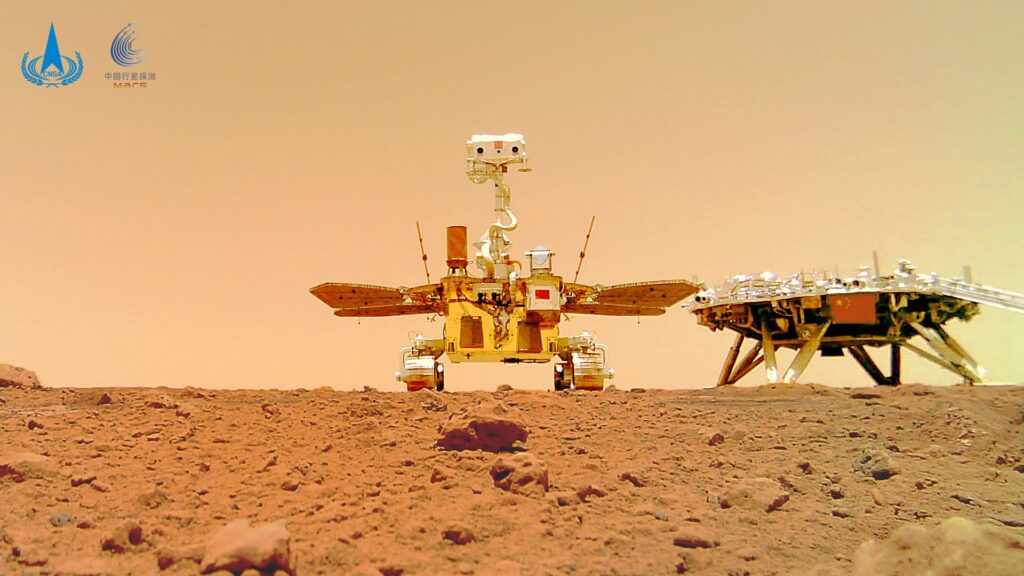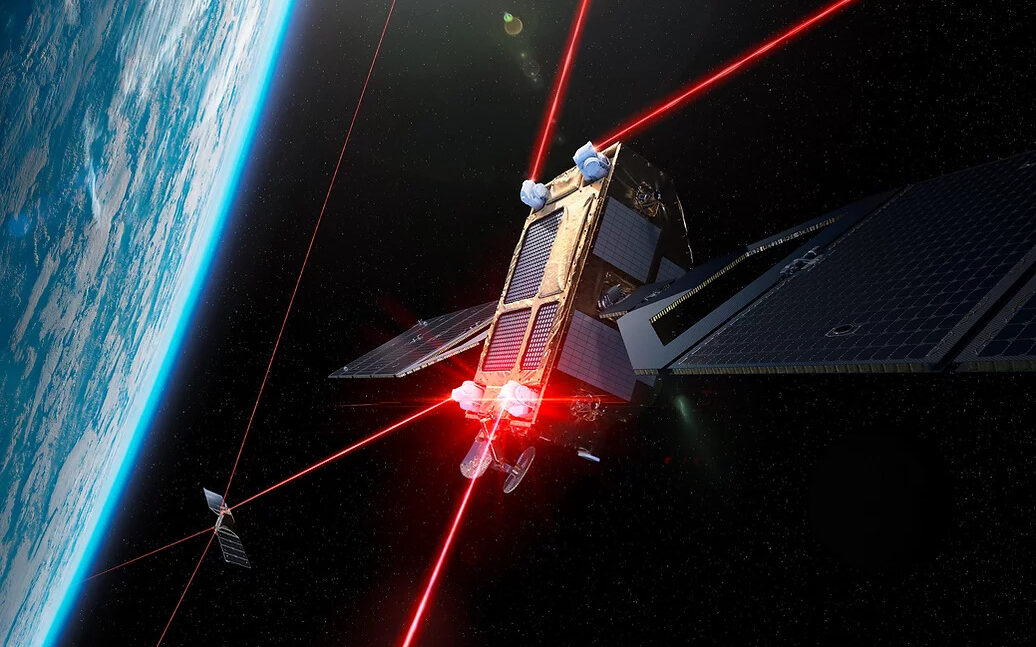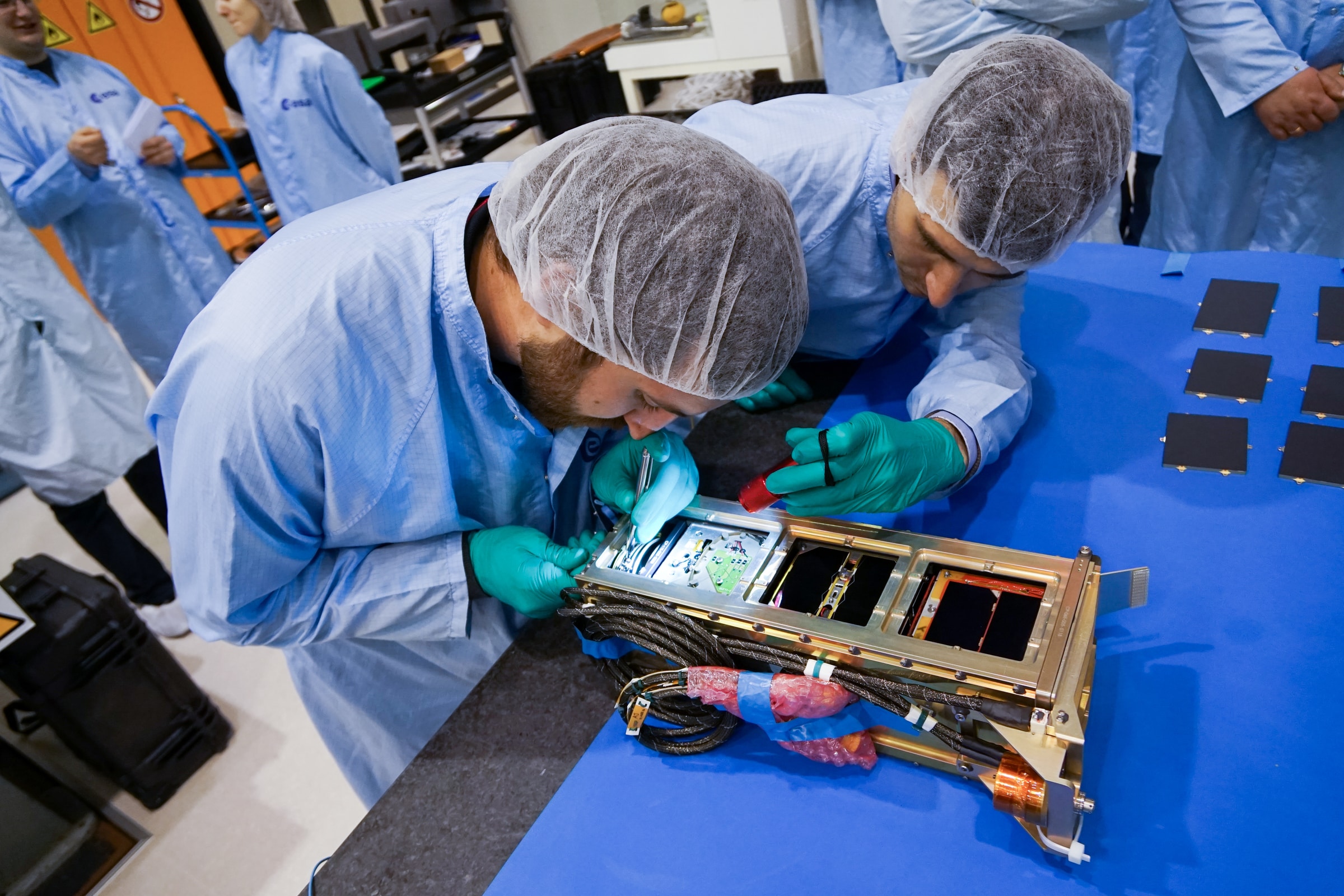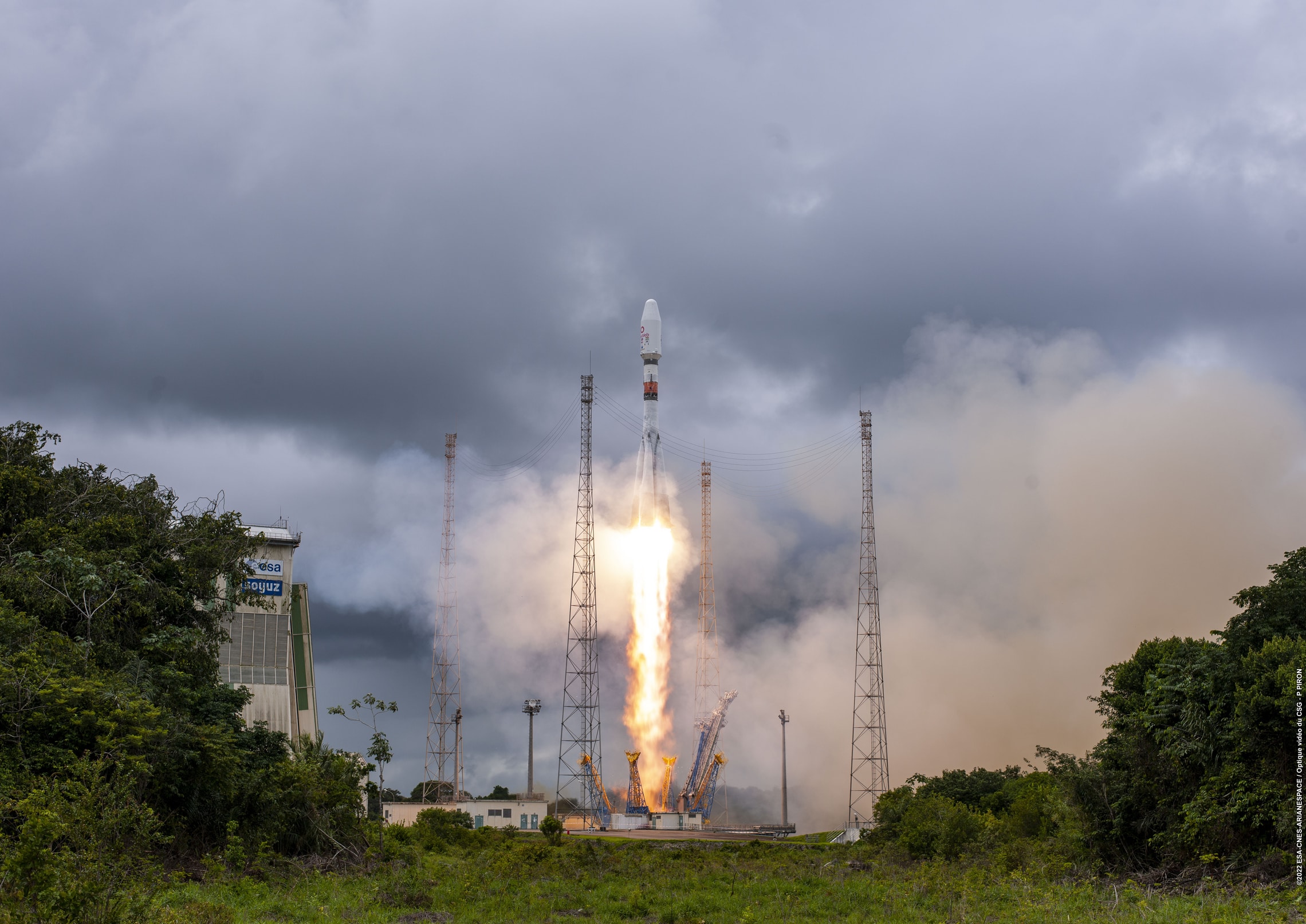
BDI calls for German Responsive Space Capability for Europe and NATO
Published on Sun, 20.02.2022 – 20:55 CET in Politics, covering BDIThe 58th Munich Security Conference (MSC) took place from February 18-20, 2022. Due to the tense situation in Ukraine, Prof. Dr. Russwurm, President of the BDI, underlined the need for strong and innovative NewSpace companies in Germany at a BDI/vbw cooperation event during the MSC.
Despite all the enthusiasm for technology, it is impossible to ignore the political dimension of space travel. This is particularly evident in the geopolitical context, which is currently dominated by the Ukraine crisis. While Russia on the one hand and NATO on the other fluctuate between escalation and de-escalation at ever shorter intervals, space technology has a special role to play here. Among other things, it is thanks to images taken by satellites that troop movements can be observed. But that is by far not all.
More than three decades after the end of the Cold War, a conflict is currently flaring up that went down in history as a competition of systems. Both then and now, the key issue is who is the technical pioneer. In his speech on the successful launch of the astronautical flight as part of the SpaceX Demo-2 Mission (SpX DM2), former U.S. President Donald J. Trump phrased the thoroughly questionable sentence: "You can't be number one on earth if you are number two in space." It seems that this statement fell on particularly fertile ground in the Eastern hemisphere. According to statements by FDP politician Dr. Marie-Agnes Strack-Zimmermann (Member of the German Bundestag, Chairwoman of the Defense Committee of the German Bundestag), Russia is focusing on closing ranks with China. The Asian country has set itself the goal of becoming the world's number 1 economically and militarily by 2040.
China's ambitious space program
China, in particular, is pushing ahead massively with the development of its competencies in the space industry. In May 2021, for example, the rover "Zhurong" landed on Mars - a maneuver previously only achieved by the USA. The Soviet Union was able to land a probe on our neighboring planet in the 1970s, but contact was immediately lost. The first Chinese are expected to set foot on Martian soil as early as 2033. If this were to succeed, the country would be ahead of the U.S. company SpaceX, despite its ambitious plans.

In addition, the construction of a Chinese space station is currently in progress. The first modules are already in space, and construction should be completed by the end of 2022. The International Space Station ISS, meanwhile, will be brought down in a controlled manner in January 2031. At least that is what NASA announced at the beginning of February 2022. If Russia and China joined forces, experience in space technology would be combined with financial power and political will.

Satellites are part of the critical infrastructure
In the short term, however, developments in low-earth orbit are far more relevant. Satellites have long been part of the critical infrastructure, but it is almost impossible to secure them at altitudes of several hundred kilometers. Russia tested the shooting down of a satellite as recently as November 2021. Although Cosmos-1408, a retired Russian satellite, was destroyed, the explosiveness lies in the available technology. China, on the other hand, proved in January 2022 that it is now capable of removing satellites from orbit in a targeted manner. Officially, Shijian-21 (SJ-21) put a decommissioned Chinese satellite of the Beidou navigation system into a graveyard orbit. But here, too, it is clear that the status quo of being a leader in space is regularly called into question.
"Germany must not just stand on the sidelines."

In his speech, Prof. Dr.-Ing Siegfried Russwurm pointed out that "trade and security policy are more intertwined than ever". According to him, politicians, companies and society alike must ask themselves where they stand and what role they want to play in the face of security policy challenges. If the value-based community of liberal democracies with its fundamental principles of sovereignty, the rule of law, freedom of expression and human development were taken seriously, it would have to be acknowledged and acted upon. The same applied to the free market economy. In this respect, he said, Germany must stand by its partners and allies, "not just on the sidelines or in safe cover."
Germany as a reliable partner of the EU and NATO
Germany must be a reliable partner within the framework of the EU and NATO. As Russwurm emphasized, the expansion of Europe's much-vaunted strategic autonomy is not a foregone conclusion. It needs technological capabilities, as they are the basis for reducing critical dependencies and being able to act independently. "More European sovereignty and an innovative security and defense industry are two sides of the same coin. A negative classification of the industry under the social taxonomy would be absolutely counterproductive, especially in the current geopolitical situation." As Europe's economic powerhouse, Germany is expected to play a clear leadership role, Russwurm said. German companies could make a decisive contribution to this. One way to do this, he said, is to make greater use of new technologies:
For example, to protect its critical telecommunications and connectivity infrastructures, Europe must be capable of launching satellites from continental Europe into space at very short notice to replace failures. Thanks to innovative new-space companies and the private-sector initiative for a launch platform in the German North Sea, the German government should provide such a defensive responsive-space capability to its partners.
Prof. Dr.-Ing Siegfried Russwurm, President of the Federation of German Industries (BDI)
Grab instead of wasting taxes
He also welcomed the fact that "New-Space" is mentioned for the first time in the coalition agreement as a key future technology. In recent years, he said, private investment has created a dynamic NewSpace ecosystem. But instead of using taxpayers' money to elaborately redevelop the associated capabilities now, the federal government should leverage existing capabilities. The know-how, infrastructure, and globally leading companies and startups are there, he said. "There is no reason to hesitate, the federal government just needs to grab it."
via BDI, vbw









